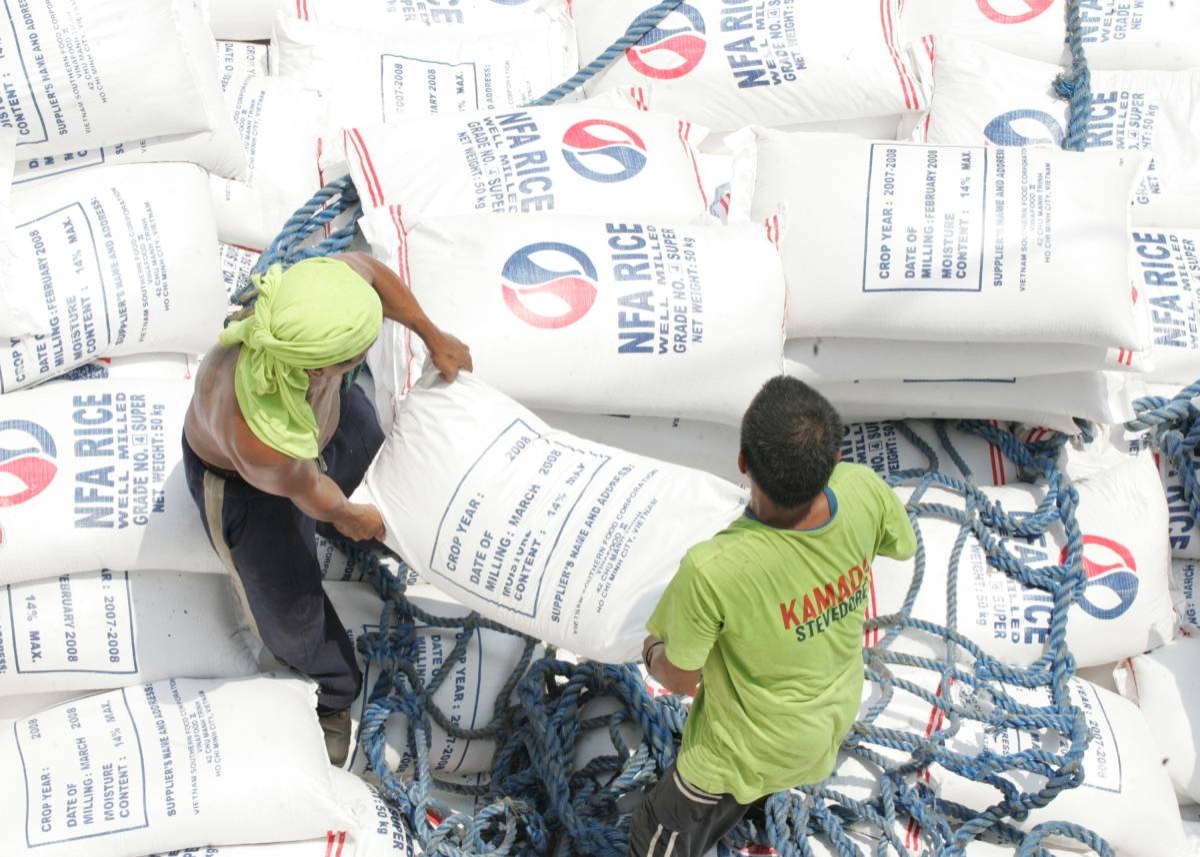The National Food Authority’s Improper Rice Sales: A Growing Concern
As the allegations against the National Food Authority (NFA) continue to mount, farmers across the country are expressing their frustration and disappointment with the agency’s improper rice sales. The Federation of Free Farmers (FFF) has been at the forefront of this issue, shedding light on the NFA’s questionable practices.
Questionable Practices and Sales Figures
According to the FFF, the improper sale of 75,000 bags of rice earlier this year is just the tip of the iceberg. The farmers’ group has revealed that in 2021 alone, the NFA sold approximately 5.6 million bags of rice to private buyers without following the proper bidding process. These sales were justified as a means of disposing of aging stock, but the FFF believes this to be a mere facade.
In fact, the FFF has estimated that the NFA’s sales in 2021 and 2022 amounted to a staggering P12 billion. Each 50-kilo sack of rice was sold for P1,250, with buyers reportedly paying only P25 per kilo without going through the bidding process. These numbers paint a picture of rampant corruption and a complete disregard for fair and transparent practices.
Depletion of Inventory and Dubious Documentation
What is even more concerning is the rapid depletion of the NFA’s inventory as a result of these sales. By the end of 2022, the agency had only 3.5 days’ worth of national consumption requirement left. This means that the NFA is ill-prepared to handle any potential rice shortages or emergencies that may arise in the future.
Moreover, the FFF has uncovered instances where sales were documented after the rice was already transferred to buyers. This allowed the transactions to be categorized as the disposal of old stock, further obscuring the truth behind the NFA’s actions.
Legitimacy and Compliance Concerns
The farmers’ group has also raised questions about the legitimacy of the NFA’s sales. Records show that during the first two months of 2022, the NFA sold a million bags of rice to private buyers, despite only about 153,000 sacks being considered aging stock. This stark discrepancy raises concerns about the agency’s honesty and integrity.
Public Outrage and Call for Action
As farmers continue to voice their grievances, it is clear that the NFA’s improper rice sales have had far-reaching consequences. Not only have these sales undermined the livelihoods of farmers, but they have also compromised the nation’s food security. It is imperative that swift action is taken to investigate these allegations and hold those responsible accountable for their actions.
As news of the improper rice sales spread, it sparked outrage among the public, with many questioning the integrity of the NFA and its ability to fulfill its mandate. The investigation ordered by Agriculture Secretary Francisco Tiu Laurel Jr. is seen as a crucial step in restoring trust and ensuring that those responsible for the irregularities are held accountable.
The Rice Tariffication Law and Challenges for the NFA
The Rice Tariffication Law (RTL) was implemented in 2019 with the aim of liberalizing the rice industry and reducing the country’s dependence on imports. However, the law also introduced new challenges for the NFA, particularly in managing its buffer stock and ensuring that it is distributed appropriately to those in need.
Under the RTL, the NFA is required to maintain a buffer stock equivalent to nine days of national consumption. This stock is meant to be reserved solely for calamity victims. However, the implementing guidelines of the law allow for the sale of aging stocks to private entities under certain conditions, such as when the rice has been stored for over six months for palay or three months for rice inventories.
It is these provisions that have come under scrutiny, as reports suggest that the NFA may have been selling its aging stocks to private entities without proper justification. This raises concerns about the agency’s compliance with the law and whether it has been prioritizing profit over its duty to provide affordable rice to the public.
Demands for Transparency and Accountability
As the investigations proceed, there is a growing call for transparency and accountability within the NFA. Many are demanding a thorough review of the agency’s operations, including its procurement processes, storage facilities, and distribution networks. There is a need to identify any weaknesses or loopholes that may have allowed these improper sales to occur and to implement measures to prevent such incidents in the future.
Furthermore, the suspension of top officials and the reported padlocking of some warehouses have disrupted the NFA’s normal operations. This comes at a critical time, as the country is entering the harvest season, and the agency needs to be fully functional to ensure the smooth flow of rice from farmers to consumers.
Importance of Investigation and Restoring Public Trust
Given the importance of rice as a staple food for Filipinos, it is imperative that the investigation is conducted swiftly and thoroughly. The public deserves answers and assurance that the NFA is working in their best interest. Only through a comprehensive and transparent investigation can the agency regain the public’s trust and fulfill its mandate effectively.







